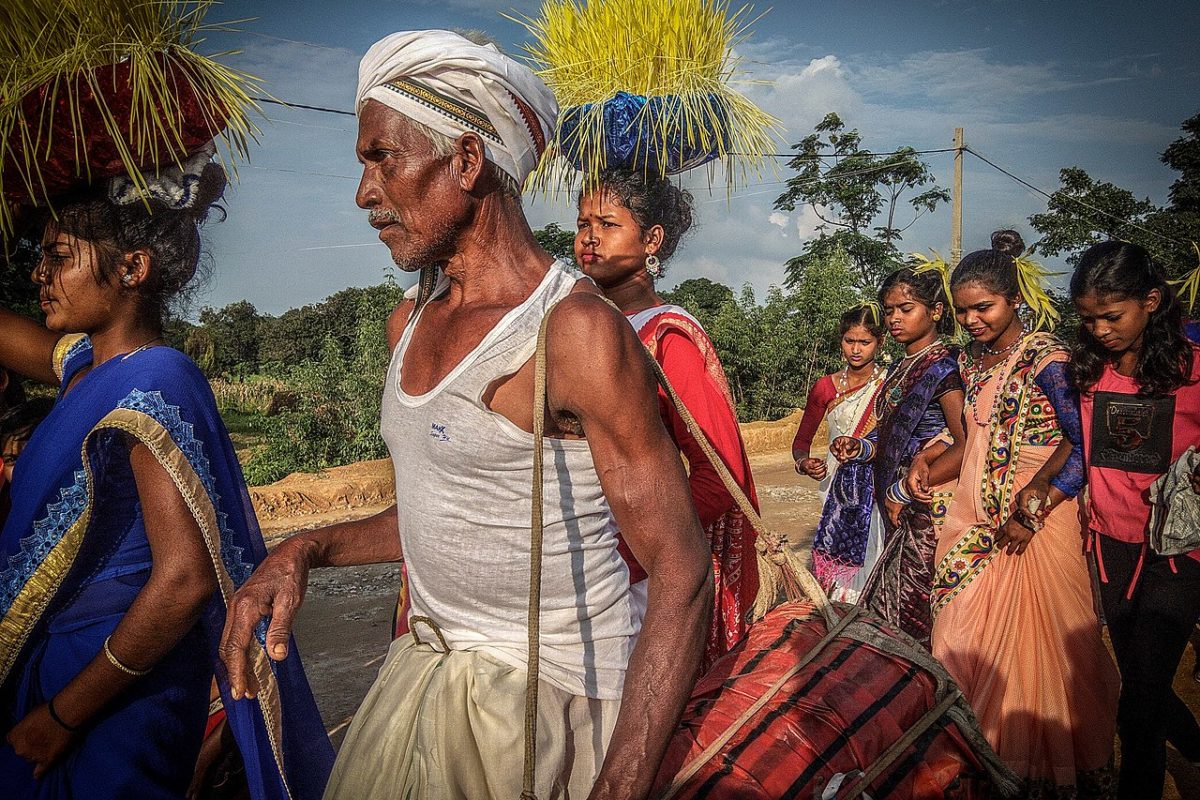As 13 states and 94 constituencies go to polling on May 7, the Indian elections are very much underway. In the past year, there have been several developments, with parties trying to woo the Adivasi and tribal communities of India in various ways.
The BJP government has put its foot forward with increasing the budget for scheduled tribes from Rs 4,295.94 crore in 2023-2022 to Rs 12,461.88 crores in 2023-24.
Amidst other steps, the government has also allocated about Rs 24,000 crores towards the Pradhan Mantri Particularly Vulnerable Tribal Groups (PM PVTG) mission. The BJP also highlights the appointment of Droupadi Murmu as the first tribal President. Congress on the other hand has released in its manifesto and it has promised to protect the Jal, Jangal, Zameen of the Adivasi. Furthermore, it has also stated that the party will repeal all the amendments made to the Forest Conservation Act (2023). The amendments were criticised and saw heavy protests as they are seen to be diluting the historic rights granted to tribal communities by the Forest Rights Act 2006.
The run up to the elections in Madhya Pradesh, Rajasthan and Chhattisgarh were seen by many to be indicative of the fate of the BJP in these states as well as its hold on the tribal community in the coming Lok Sabha elections. Each of these states has a sizable population of Scheduled Tribes. Madhya Pradesh has 21%, Chhattisgarh has 30 %, and Rajasthan has 13 %, according to the 2011 Census. Many of these poll-bound states saw hate speech against Muslims and tribals during the run-up to the election, particularly in Chhattisgarh and Rajasthan. The BJP was reportedly campaigning heavily in tribal belts during the elections, invoking the name of Birsa Munda. In Rajasthan, where over 5697 villages have been designated as Scheduled Area, there were several hate speeches invoking Mughals, the hijab and so forth. In Pipalda, where Scheduled Tribes comprise about 22% of the population, UP CM Yogi Adityanath visited and gave a speech decrying the Mughals. However, while BJP was victorious in the Rajasthan assembly elections, tribals in the state have not been too happy. This has led to new parties to gain ground in the state. The Bharat Adivasi Party is one such example that fills this gap between the aspirations of the people and the political representation. The party won one assembly seat in the 2018 assembly elections and then later won 3 seats in the 2023 elections. Interestingly, the party also gained grounds in Madhya Pradesh’s Ratlam district and won a seat there as well. The party was reportedly founded by Rajkumar Roat, member of the Bhil tribe, who won the Chorasi seat in Rajasthan by a margin of over 69000 votes. The BJP won 22 out of 47 of the reserved seats for Scheduled Tribes in Madhya Pradesh, while Congress won 20. In Chattisgarh, it seemed there was more emphasis on taking up the bogey of Rohingyas as people who will take the/your land. The state also saw a visit by Assam CM Himanta Biswa Sarma. BJP won 17 of 29 reserved seats for Scheduled Tribes in the state in 2023.
Related:
Will they, or won’t they? Making a case for Adivasi (tribal) rights during the 2024 Indian elections
The case for forest rights in the republic of India: why should the BJP be worried?
